Moving beyond Punch and Judy's sinister past
A pair of puppets with a rather violent past get a makeover for today's young audiences

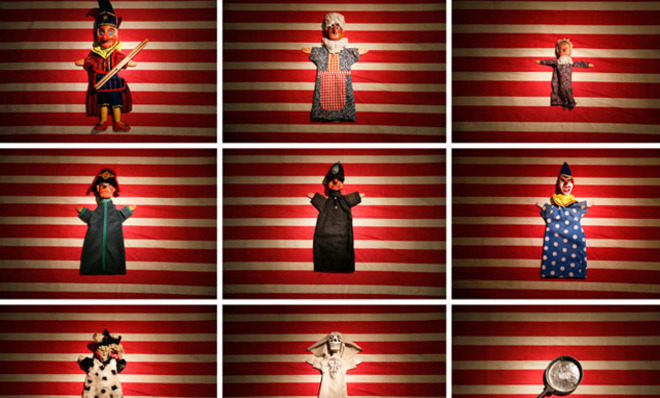
A free daily email with the biggest news stories of the day – and the best features from TheWeek.com
You are now subscribed
Your newsletter sign-up was successful
If told the way they were intended, children's fairy tales and nursery rhymes would be the stuff of nightmares, not bedtime stories. But, over the centuries, the twisted seedlings of those tales blossomed, with the help of a prudent public, into glossy, candy-bearing trees whose dark roots were neatly hidden from view.
The Mr. Punch and Judy puppets are no exception to their childhood literary forebears. In fact, the dolls' history may be among the most sinister of stories. Italian in origin, the puppet "Pulcinella" arrived in England in 1662, morphing first into "Punchinello," then the Anglican "Punch," and picking up a wife (Judy) along the way.
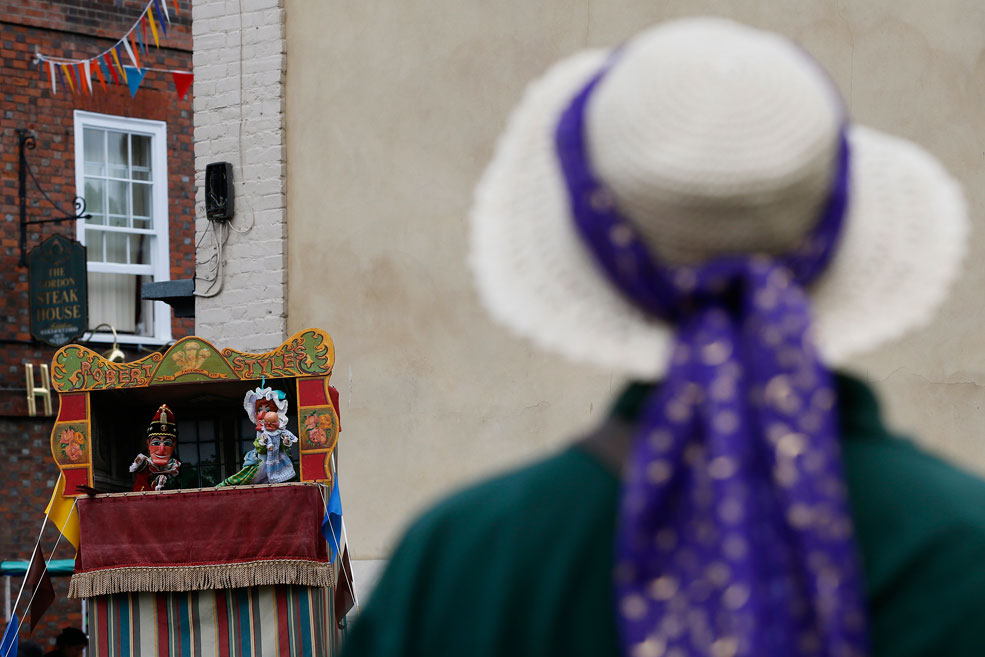
Audiences who arrived at a Punch and Judy show beginning in the Victorian era were introduced to Punch, a womanizing, murderous fellow who beat anyone standing in the way of his good time — and that included his wife, Judy, and the couple's baby. Punch's violent storylines ended with his farewell to the audience: "That's the way to do it!"
The Week
Escape your echo chamber. Get the facts behind the news, plus analysis from multiple perspectives.

Sign up for The Week's Free Newsletters
From our morning news briefing to a weekly Good News Newsletter, get the best of The Week delivered directly to your inbox.
From our morning news briefing to a weekly Good News Newsletter, get the best of The Week delivered directly to your inbox.
Not surprisingly, the puppets' ability to remain a draw for children (and their parents) today has required the homicidal tendencies to be toned down. But that's prompted frustration from some Punch traditionalists, who argue that watching puppets bash each other is no different than television cartoons that do the same.
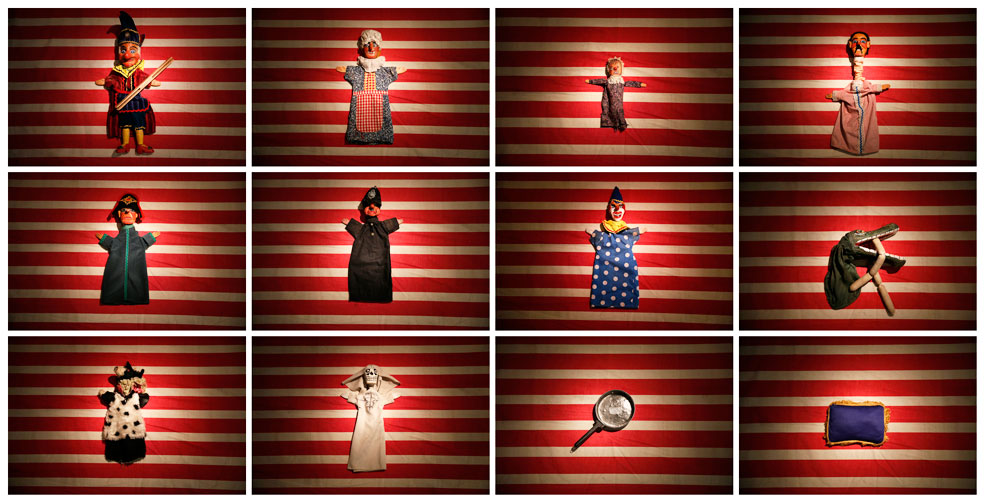
The puppets will get a chance to introduce audiences to their more stomach-turning past in Gone Girl, the movie based on Gillian Flynn's best-selling novel that premieres on Friday. (Without offering any spoilers, the puppets play a key plot role.) But outside of theaters, Punch and Judy "professors," as the performers are called, are just trying to keep their decidedly nostalgic shows relevant — and family-friendly.


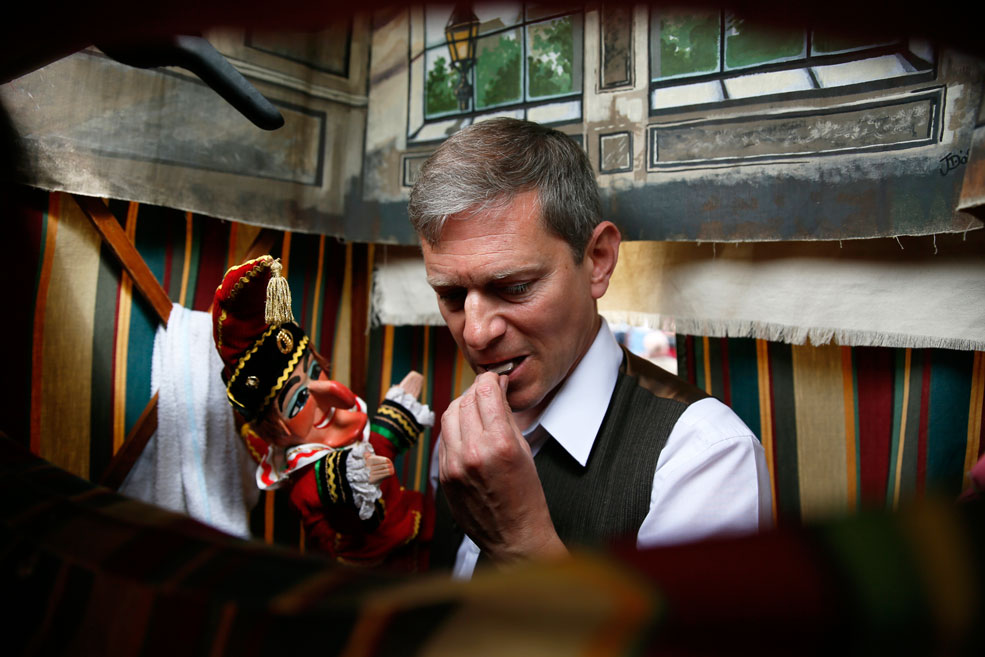
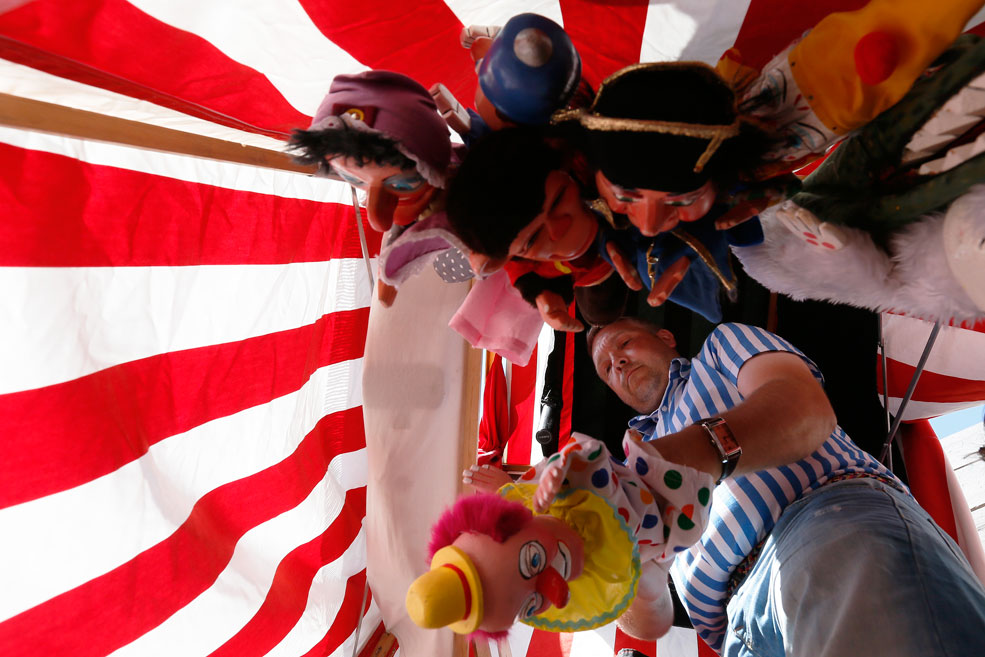
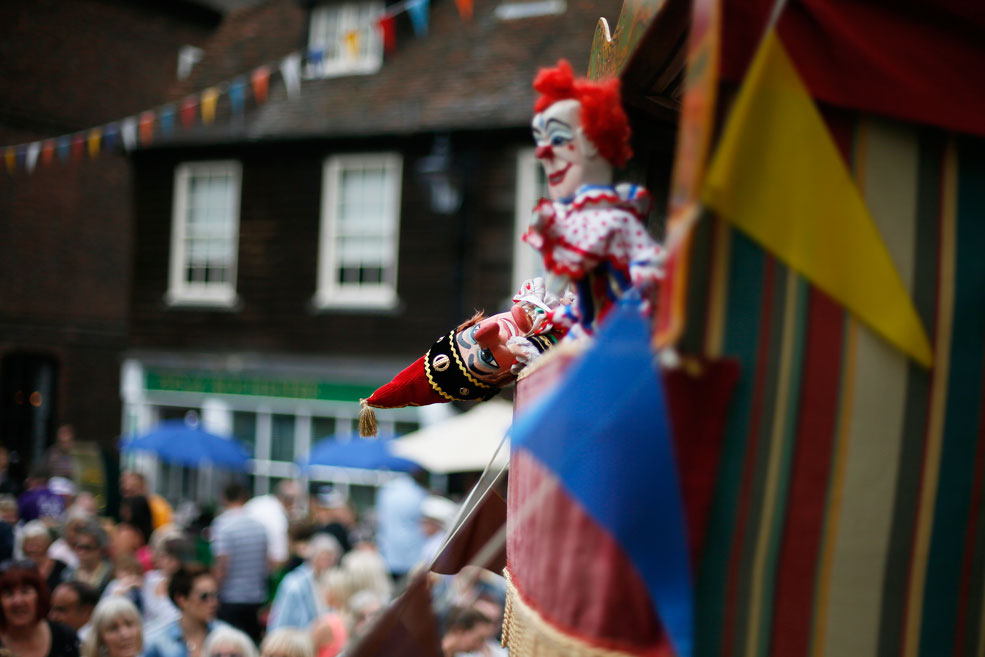

A free daily email with the biggest news stories of the day – and the best features from TheWeek.com
Sarah Eberspacher is an associate editor at TheWeek.com. She has previously worked as a sports reporter at The Livingston County Daily Press & Argus and The Arizona Republic. She graduated from Northwestern University's Medill School of Journalism.
